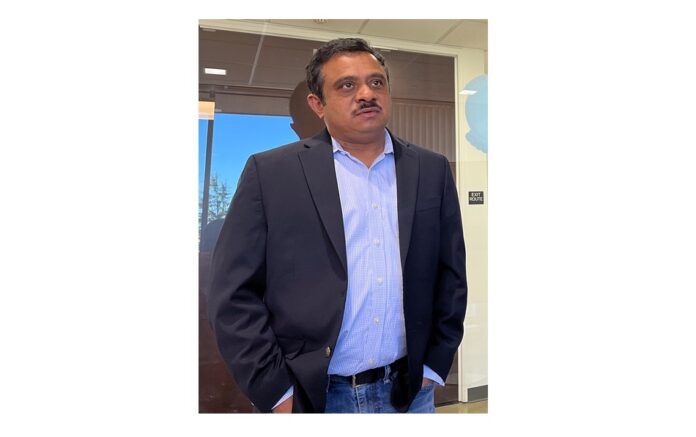Startup CloudFabrix claims it will bring disciplined data processing to machine-generated data chaos and so mend what it declares to be the broken AIOPs world.
Diagnosing faults and attacks in modern IT systems is becoming multi-layered rocket science with horrendously complicated interactions between elements in all levels of the IT stack, from basic compute, networking and storage HW through system software and virtualized and/ containerized application software, with myriad differing streams of machine-generated log data. CloudFabrix has developed software to store all this data in a single melting pot, massage and manipulate it with AI techniques and and make it available to whoever needs it in a much more usable form.

CloudFabrix CMO Shailesh Manjrekar briefed an IT Press Tour at CloudFabrix’s Pleasanton HQ in January, and said: “AIOPs is broken.”
Our sense of the 53-slide deck-supported session is that the company sees a state of full stack observability data indigestion and intends to replace that with data integration. Its founders say that trad IT infrastructure management software just cannot cope.
AIOPs (Artificial Intelligence for IT Operations) is hindered by multiple data silos preventing a single, all-encompassing source of truth for observability, security and IT infrastructure state problem analytics.
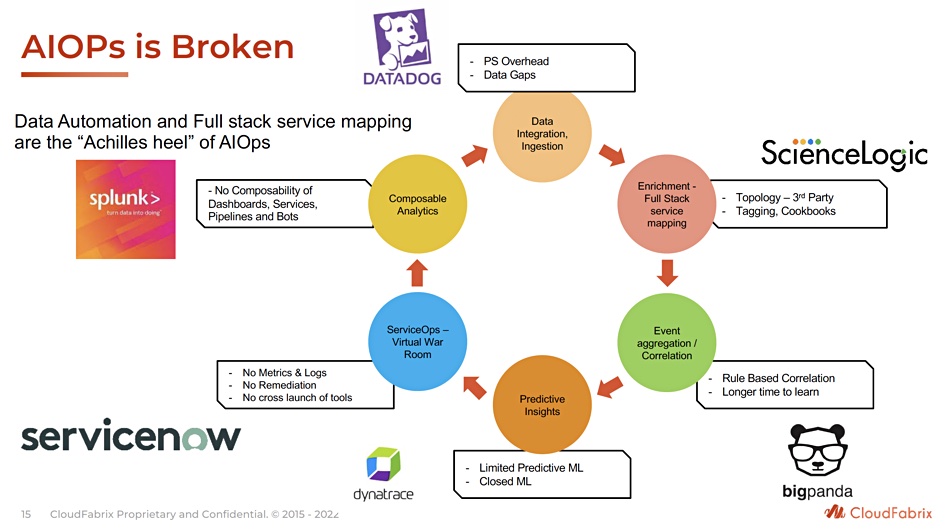
Such analytics are needed for business operations and planning, FinOps, CISO and DevSecOps, and data operations; different personas needing their own composed dashboards.
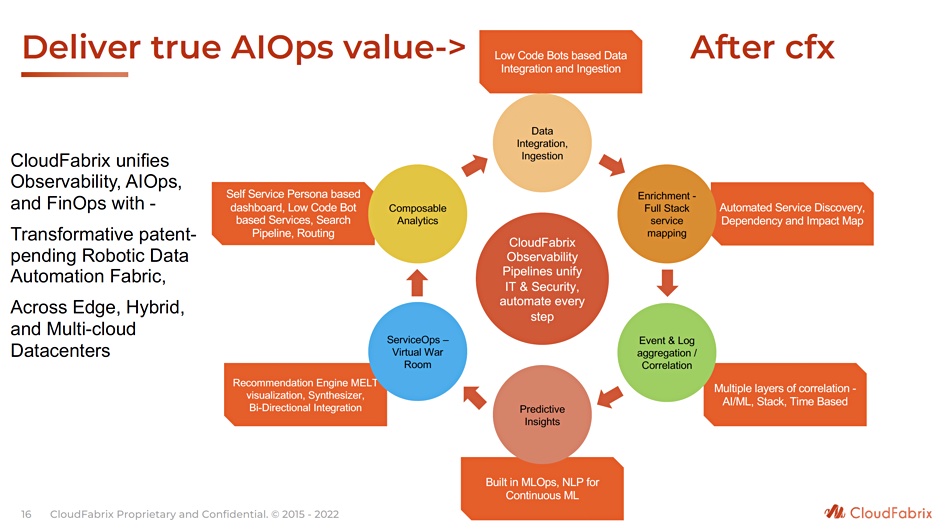
It has devised a Robotic Data Automation Fabric (RDAF) with more than a 1,000 robot agents (bots) to provide a single pool of cleaned and massaged AIOPs data into which the different analytics and planning personas can peer, through their own dashboards, for monitoring, event and fault analysis, planning, trend prediction and what ever else it is they need to do.
In the event and fault analysis area, the CloudFabrix system can correlate events across the many information sources in its data lake and send a much lower and more reliable number of alerts to admin staff, who can then investigate what’s going in in the relevant areas of their IT system.
Bots can filter data, select column subsets, compute new columns, fix, aggregate and enrich input data, perform NLP sentiment analysis and predict time series data, and classify using GPT-3.
The technology is complicated and a FinTech customer technology slide gives an indication of this:
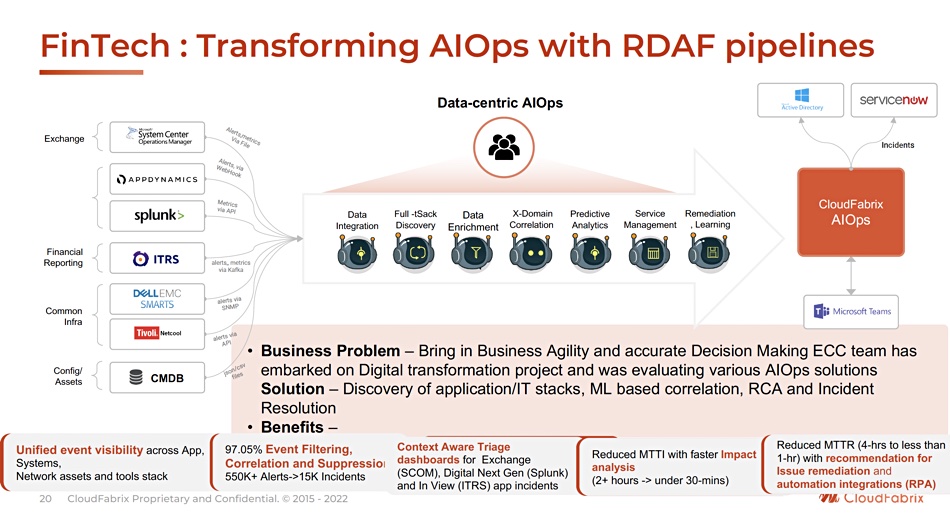
CloudFabrix says it has a generally-applicable way of aggregating multiple IT Infrastructure stack state information sources, cleaning and correlating them, and then presenting them to the different IT roles in the right way.
AIOPs has enormous promise, representing the only feasible way modern IT infrastructures, which contain traditional, virtual, cloud-native, on-premises and multi-public cloud components, can be monitored, managed and mended when faults occur. If CloudFabrix is right then the founders probably have another exit coming.
Company background
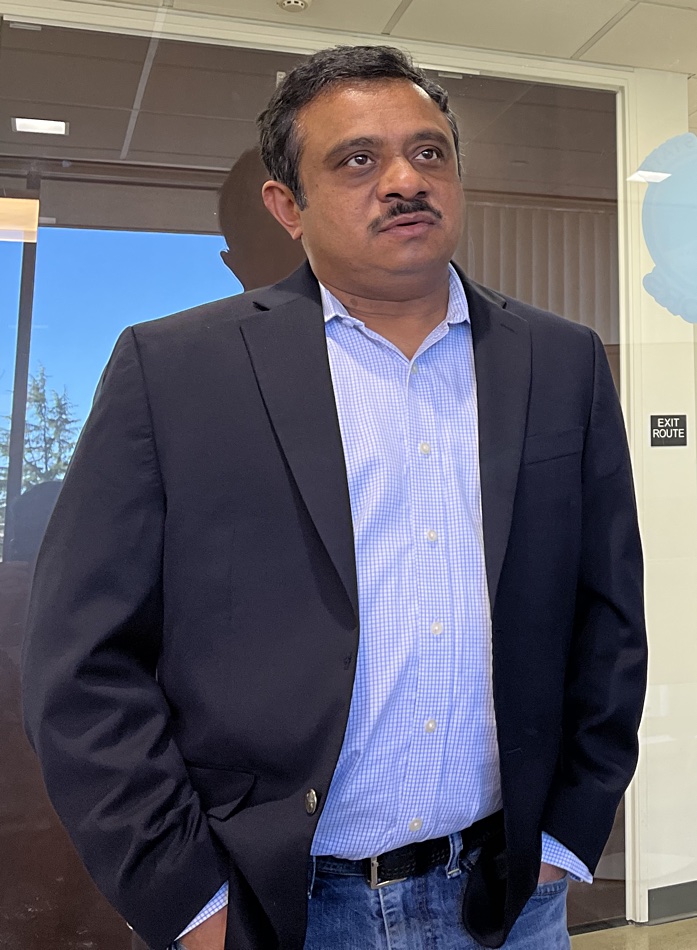
CloudFabrix was incorporated in India and the US in 2013. It was started up in 2015 by CEO Raju Datla, Chief Development Officer Satyan Raju, CTO Raju Penmetsa and Chief Product Officer Bhaskar Krishnamsetty. It has raised $24.5 million, according to Crunchbase, with the founders and others putting in around $17 million in seed funding and a $7.5 million A-round. The founders appear to have more or less eschewed VC funding to avoid shareholding dilution.
Some of the founders have been involved with three previous startups, all bought by Cisco: Jahi Networks (2004, $16 million), Pari Networks (2011, price undisclosed) and Cloupia (2012, $125 million), in the cloud management, compliance and automation markets.
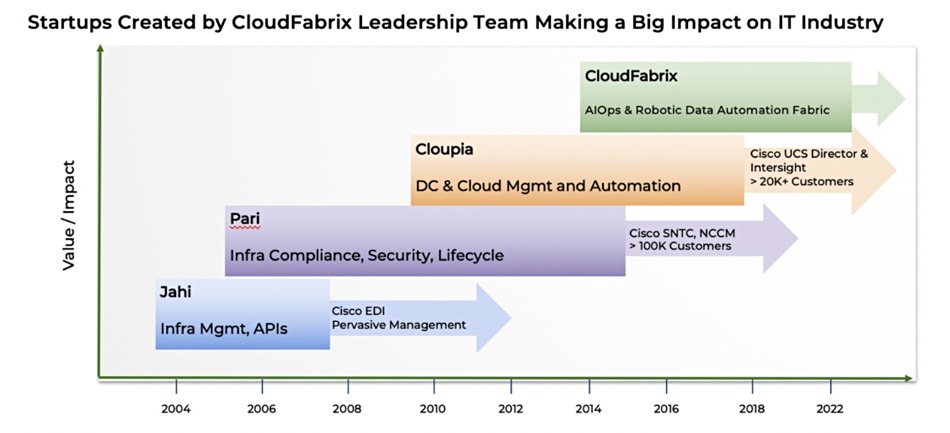
CloudFabrix had a blockbuster 2022 year pulling in around $25 million in revenue with 250 percent YoY ARR growth. Customers include TATA, L&T Infotech, Kaiser Permanente, Varutra, and a telco responsible for 30 percent of global internet traffic. Storage supplier partnerships include Cloudia, Hitachi, Amazon (S3), Minio and Scality. It has go-to-market partnerships with Cisco, DXC Technology, HPE and IBM and expects huge growth in 2023. CloudFabrix wants to provide the monitoring and event data plumbing for autonomous enterprises.


